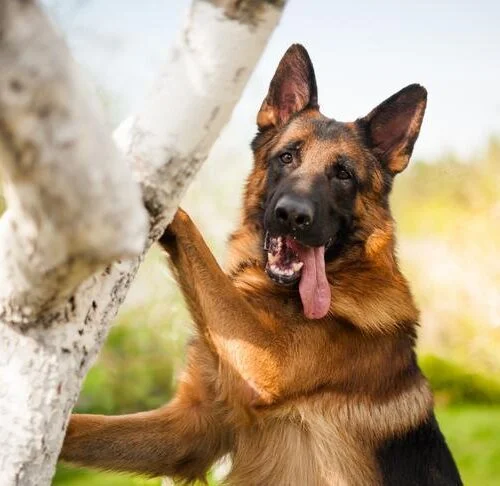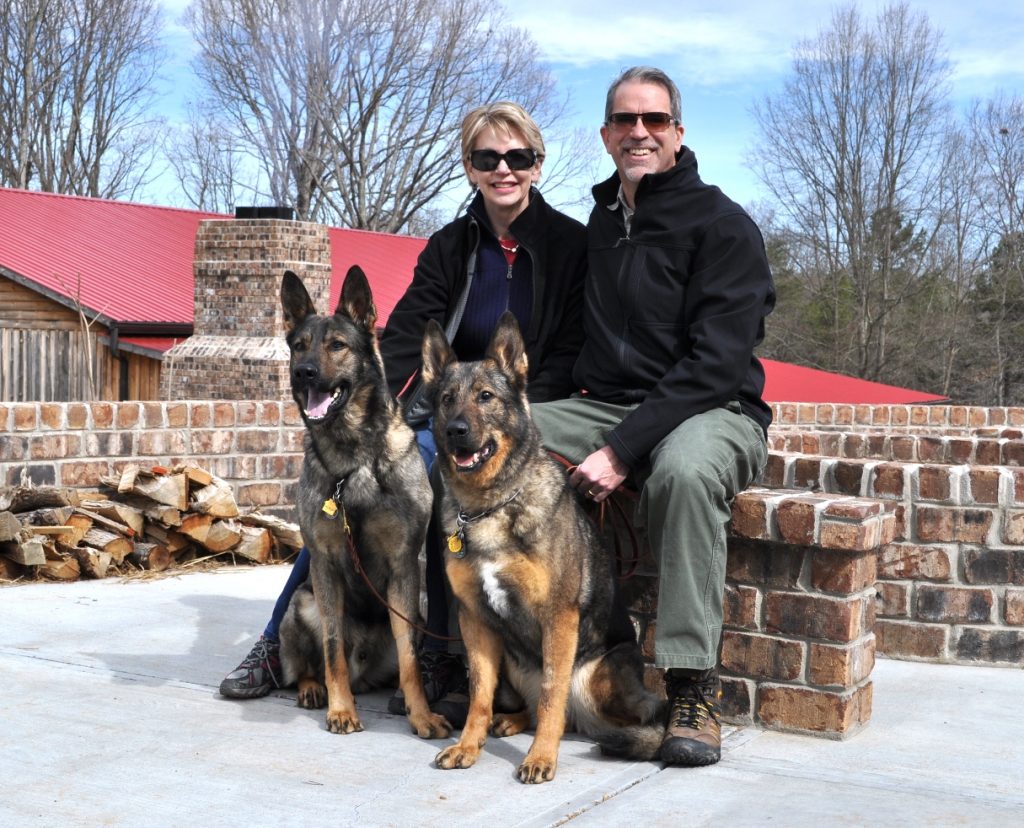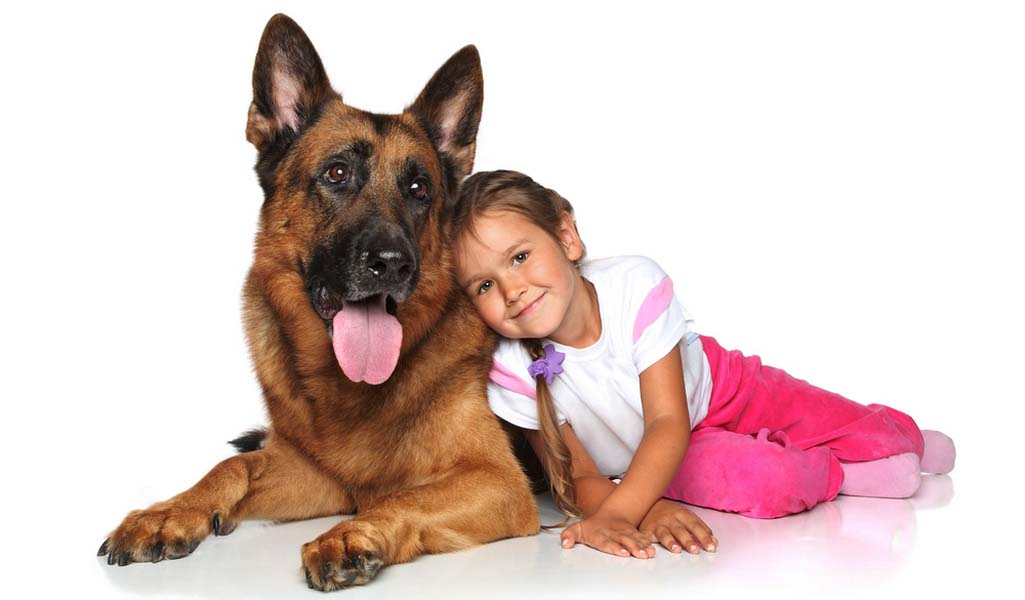Will German shepherds protect if not trained? Picture this: It’s midnight. A shadow moves near your backyard. Before you can react, your German Shepherd (GSD) erupts into a deep, thunderous bark, hackles raised, eyes locked on the intruder. No command was given. No training was required.
Table of Contents
The dog’s instincts took over. But is this raw, untrained response enough to keep you safe? Let’s unpack the reality behind the German Shepherd’s legendary protective reputation—and why relying solely on instinct might leave you vulnerable.
The German Shepherd’s Genetic Blueprint: Born to Protect?

German Shepherds weren’t bred to be couch companions. Their DNA is steeped in purpose. Originally developed in 1899 by Captain Max von Stephanitz for herding and guarding livestock, the breed’s intelligence, courage, and loyalty quickly made them a favorite for police and military roles. According to the American Kennel Club (AKC), GSDs excel in protection work due to their “confidence, courage, and steady nerves.”
But here’s the catch: Instinct ≠ Training. While their genetic wiring primes them to be alert and territorial, untrained GSDs may lack the discipline to discern real threats from harmless scenarios. A dog that barks at the mailman isn’t necessarily prepared to confront an armed intruder.
Key Factors That Influence Untrained Protective Behavior
- Temperament: A well-bred GSD from working lines often has stronger protective instincts than one from show or pet lines.
- Socialization: Dogs exposed to diverse environments early are less likely to react aggressively out of fear.
- Bond with Owner: GSDs are fiercely loyal. A strong bond can amplify their drive to protect family members.
- Health: Untreated issues like hip dysplasia—common in 20% of GSDs, per Orthopedic Foundation for Animals (OFA)—can hinder physical readiness.
Trained vs. Untrained: How Effective Is “Natural” Protection?
| Scenario | Untrained GSD | Trained GSD |
|---|---|---|
| Stranger Approaches Home | May bark, posture defensively | Barks on command, blocks entry, deters threat |
| Owner in Distress | Might react impulsively or freeze | Intervenes strategically, targets aggressor |
| Public Space Threat | Unpredictable; could overreact or panic | Obeys cues, maintains control, de-escalates |
An untrained GSD’s protection is like a car without brakes: powerful but dangerously uncontrolled. Without guidance, their responses can escalate into aggression toward innocent people or fail under pressure.
Also Read: Understanding the German Shepherds Howl: What Your Dog Is Trying to Communicate
The Risks of Relying on Instinct Alone
- False Alarms: Untrained dogs may perceive children playing or neighbors chatting as threats.
- Liability Issues: A dog that bites without provocation could lead to legal consequences.
- Inconsistent Results: Instinct-driven reactions vary widely between dogs. One might confront a threat; another might retreat.
How Training Transforms Instinct Into Precision
Professional protection training isn’t about creating aggression—it’s about refining natural instincts into reliable skills. Programs like those at K9 Protection Services focus on:
- Obedience: Commands like “sit,” “stay,” and “release” ensure control.
- Bite Work: Teaching the dog to target sleeves or suits, avoiding real harm.
- Scenario Training: Simulating break-ins, crowds, or ambushes to build confidence.
As renowned trainer Michael Ellis explains, “A protection dog isn’t just born—it’s made through structured, ethical training.”
Case Study: When Instinct Wasn’t Enough

In 2020, a Colorado family’s untrained GSD barked wildly during a home invasion but retreated when the intruder brandished a weapon. Contrast this with a trained GSD in Texas, which subdued an armed robber by latching onto the weapon arm until police arrived. The difference? Training turned raw courage into tactical action.
German Shepherds vs. Other Breeds: How Do They Stack Up?
While breeds like Rottweilers and Dobermans also have protective instincts, GSDs stand out for their versatility. Belgian Malinois may outperform them in agility, but GSDs strike a rare balance between drive and adaptability to family life. However, as the International Association of Canine Professionals (IACP) notes, no breed is inherently a “perfect” protector without training.
The Ethical Dilemma: Should You Skip Training?

Imagine trusting your safety to a dog that’s never practiced disengaging on command or identifying genuine threats. Training isn’t just about effectiveness—it’s about responsibility. An untrained GSD could misinterpret a hug as an attack or lunge at a jogger.
3 Steps to Maximize Your GSD’s Natural Abilities
- Start Early: Socialize puppies to reduce fear-based reactions.
- Basic Obedience: Reinforce commands like “leave it” and “quiet.”
- Consult a Pro: Even foundational training with a certified expert can sharpen instincts.
For DIY tips, explore Leerburg’s protection training resources, but remember: Complex skills require professional guidance.
Final Verdict: Yes, They’ll Try—But Training Is Non-Negotiable
German Shepherds possess a raw instinct to protect, but untrained, they’re like a loaded gun without a safety. Training transforms their potential into precision, ensuring they act decisively—and only when necessary.
Your Move: If you’re serious about protection, invest in structured training. Your GSD has the heart of a guardian; give it the mind of a strategist.
Have you witnessed your German Shepherd’s protective instincts in action? Share your story below—and consider consulting a trainer to channel that courage responsibly.
By blending genetics with guidance, your German Shepherd can become more than a pet—they can be a partner in safety. But as with any powerful tool, mastery demands respect, effort, and expertise.

